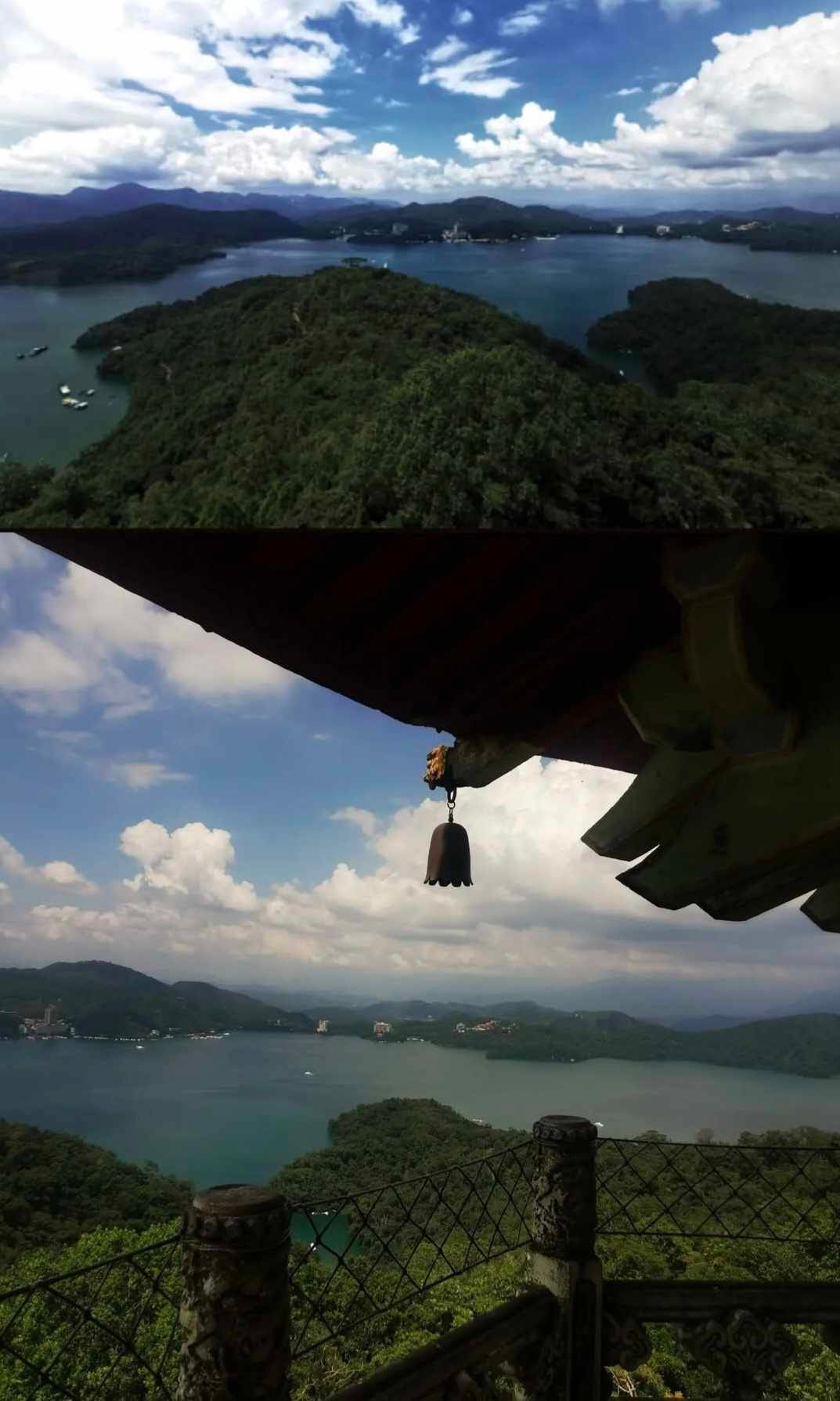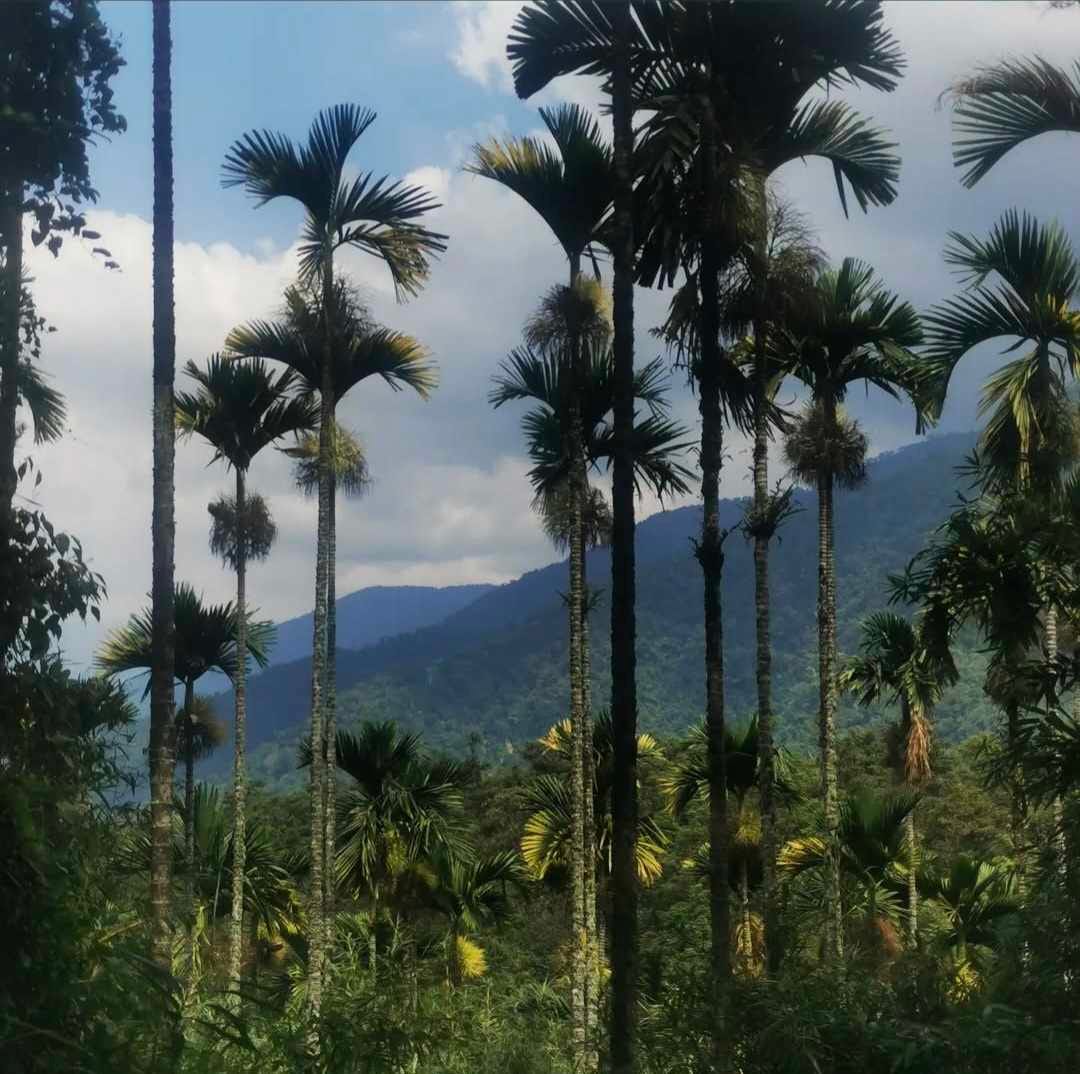Sun Moon Lake
I arrived late at Sun Moon Lake, I took the later bus in from Taichung as my energies and ambition were low and melancholic. The stop outside of Taichung station had a long unorganized queue of day-trippers arriving in from Taipei. The heat of the afternoon beat down onto my forehead, stinging sweat into my eyes and soaking through my boots. The hot air rushed around the tight concrete buildings, getting caught in the heavy foliage and bush that crept up the walls of the city. As the bus arrived I gathered my tent bag and pack and squeezed into the tight corridor of the bus. A large family of Thai tourists had conquered most of the back seats of the bus, leaving only a few spots in the aisle by the driver. I spread my items around the various sections of storage that were left on the racks and slumped into my seat. My shirt was soaked through and I had only the energy to lean my head slightly to look out the window, glancing over the Taiwanese auntie that was next to me.
The journey up into the mountains was like watching a lost VHS film as a child. Taoist and Confucian temples shrouded into deep forests on mountainsides. Thick banana and palm leaves so fertile and overgrown they scraped the roof of the bus as we drove by. Endlessly deep valleys that rose and climbed to cloudy height-less summits. Small reliefs of stone statues dotted the sides of the road, slowly being eaten by the jungle territory. Large black birds soared overhead, bombing deep into the river beds and over the tall trees as if gliding through another plain parallel to our own. Stray dogs and cats swiftly crossed the roads into small vacant food stalls, unstaffed however emanating thick clouds of delicious smelling steam. Uncles squatted next to lamp posts and watched the buses go by as they lit one cigarette with their previous. The view made the ride faster than expected as I was hoping to use this time to catch up on rest. The auntie next to me ate lemon biscuits and drank bottomless sugary coffee for the entire duration of the trip. The small woman had a very typical summer look, covered head to toe in various colorful fabric items to guard her skin from the beating sun of the day. Upon arrival into Shuishe, the town had already long since fallen asleep. The lake does not stay awake long past sunset even in the peak season for visitors. After I gathered my things I walked through the empty streets up and down the rolling hills of pavement to my hostel. The heat of the day had broken as nightfall came and a cool breeze swept down the road over the lake.
My hostel was on the top floor of a nondescript building on the lake. The roof was a mix of sheet metal and thick canvas held together by a large dock rope arranged into a mesh to hold the pieces together. An arrangement of floor beds and pillows was spread across the entire rooftop common space, sweet selling quilts and carpets were hung from floor to ceiling. Incense burned from various offering bowls around the room. Leftover cups of tea littered around everywhere as if quickly vacated. It was something expected from Marrakesh, less so from inner mountain Taiwan. The owner sat in the far corner of the dull-lit room, rolling a cigarette. Kindly he came over and shook my hand and sat with me for several minutes to chat before bed. He is a Parisian expat who met a Taiwanese girl traveling around Indonesia, they had gotten married and moved back to her village around Sun Moon Lake. A worker from Spain joined us soon after, he was a gentle-spoken man with a genuine presence. Both of them were decorated as if they had just arrived from Pai or Goa, free-spirited and with a keen sense of community. We spoke of Taiwan, and China, learning Hanzi, and studying in Kaohsiung. As it turns out the Spaniard and I had a mutual friend from Japan. An Irish boy I had worked with in Hokkaido that he then had worked with later in Hiroshima. After a few more cups of tea to add to the collection and several Pueblo cigarettes, we all retreated to our rooms. A cool rain sang through the night on the canvas roof, its sound sent me to sleep very quickly
I spent several days there, about five more days than I initially expected. I enjoyed the lake greatly, something about it kept me there. Not so much as a prisoner but as a student of the serene energy that the lake resonated with. Days were spent hiking up into the palm tree-dotted mountains to find various lookouts of the lakes. The fishing villages and trolling boats were small dots on the aquamarine plateau. Occasionally the skyline would have a hotel sprung out of the earth, less of an eyesore but more of a reminder of the undeniable attraction to this place. Temples atop the hills radiated in the summer heat. My feet crunched the dry earth of the temple grounds. A statue of the Buddha towers like a monolith over the lake, watching paternally over the gentle ebb and flow of the waters. Every day I have lunch at the same place below the limestone lookout at the docks. Every day is gai lan and morning glory, rice noodle soup, and a cup of hot tea. The Spaniard and I sit in the evening to smoke and chew betel nuts as time passes by. Time at this place moves at a snail's pace and, upon reflection goes in the blink of an eye. The patterns of the days happen to an almost arbitrary level: the sun rises and the heat begins, rain clouds dance around the mountains teasing to enter the valley, by afternoon the thunder cracks across the lake and echoes over the water, an intense rainfall follows until sunset when the whole lake is shrouded in fog, nighttime is cool and damp with a freezing altitude breeze running through the trees. This is a beautiful place, somewhere to go if you have time you want to kill or time you want to forget
The Wenwu temple sits perched on a tight corner rock cut. The road snakes around its walls wedged between the lake shore and the jutting mountain forests. It rises from the ground into multiple platforms, six realms of interlocking and eternally weaving rooms and corridors. The entrance grounds are a larger foyer to the inner temple itself. Two large lion statues nest atop two large white spheres, standing watching like a sentry over the lake. This same palette is expressed across the pillars and filigree reliefs of the five entrance doors above the dark stone staircase. Complicated and intricate patterns are carved in gold from earth to sky to a level of attention that its innermost details are lost to the naked eye. They are finished in vibrant and decadent shades of gold, jade, azure, and ivory. Inside the first sanctum is dedicated to Kaiji and the god of literature, a groundskeeper tends to remove old incense sticks lodged in sand-filled golden pots. Blood red textiles are across an offering table laden with fresh purple flowers and small porcelain urns. Gold-painted etchings of trees and roots danced up the pillars and doors, sprawling and growing across every dimension of the room. Two corridors wrap around either side of this first hall, each hallway a mirror of each other. Down these halls, a sweet and delicate smell of sandalwood fills your nose and sticks to your clothes. A smaller room juts off to the side that is devoted to love and marital affairs. Where these two hallways meet, between towering red pillars is the rear room. The back hall is centered with a black statue of Confucius, sitting coyly on a wooden box. Behind him an intricate painting in the traditional fashion of clouds in green, violet, white, and blue. The golden script runs horizontally over his head, with carvings of running deer in the forest parallel.
Behind the main halls, a further set of stairs takes you further up into the foggy hillside of the temple. Interlocking stairs run two stories up in an Escher-like infinity. At the base is a large jet-black fountain, dark as volcanic stone. The water pours down from a stone carving of dozens of dragons interlocking their scaled bodies. Making endless symmetrical serpentine knots. On either side are two images of the many pupils of Confucius, sitting listening to him deliver his words under a tree. These carvings weave up the illimitable amount of stairs to the base of several totem-like figures that are the focal point of the back wall structure for the whole complex. Its many rungs are etched with geometric, interlocking stone ideas and dancing abstract cloud facades. In the cool rain of the evening, all the stone has turned to a vantablack. Any light left in the sky is absorbed by its void-like shape. In the very rear of the totemic wall, is a secluded garden. A few sparse trees line a perfectly pruned and cut lawn. Two small ponds sit unassumingly filled with Koi fish catching insects that lay on the surface of the water. From here you can look down at the many levels and layers of the Wenwu temple. Traipsing down the hillside in a surrealist array of rooms, corridors, pillars, and statues. A warm candlelight spills out of each window, flickering a momentary light into the dark and stormy night ahead
.







